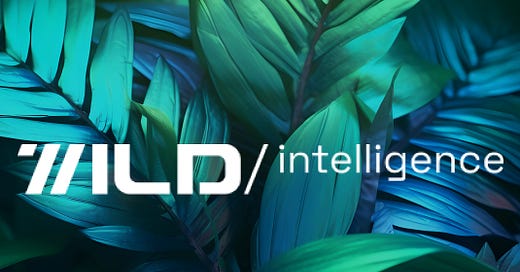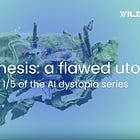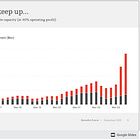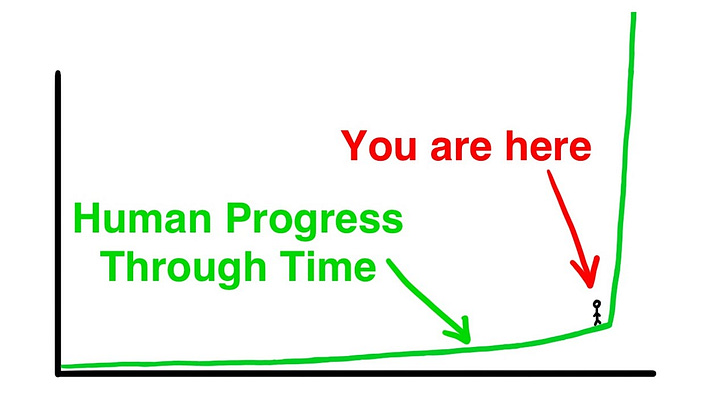📨 Weekly digest: 22 2024 | How do we govern ourselves in the AI era?
What changes should we make to create a more just and efficient global democracy? | AI this week in the news; use cases; for the techies
Hello friends, and welcome to the weekly digest, week 22 of 2024.
AI can potentially be a powerful tool for fostering a more informed, inclusive, and collaborative global democracy. However, successful implementations require international cooperation, addressing cultural biases, and ensuring equitable access to technology.
By navigating these challenges responsibly, AI can help us build a more just and efficient global order.
Ultimately, the question is not whether AI will play a role in shaping the future of democracy but how we can harness its potential to create a more informed, inclusive, and effective global governance system.
"How do we govern ourselves in the AI era?" or "What changes should we make to create a more just and efficient global democracy?"
The implications for democracy, particularly globally, are complex and uncertain. AI presents a double-edged sword.
On the one hand, it offers exciting possibilities to empower citizens, bridge communication gaps, and tackle complex global challenges with data-driven solutions.
On the other hand, significant hurdles loom in the form of cultural biases, opaque AI decision-making processes, and the real threat of a widened digital divide that could leave some nations and populations behind.
As mentioned many times in this newsletter, navigating this complex landscape will require a nuanced approach that prioritizes transparency, fosters international collaboration, and ensures equitable access to the power of AI.
Part of the concerns can be solved with LLMs—theoretically—we can now not just ask anything but get an answer to anything. Leveraging LLMs to automate pattern recognition by feeding them vast amounts of text data. LLMs can learn to interpret new information and answer questions independently (scales effectively). This creates self-learning systems with access to both pre-existing knowledge (training data) and real-time information (new data sources).
But LLMs are paradoxical. Initially, LLMs can be further developed into reasoning engines. This allows them to analyze new information sources like web pages and live news feeds, extracting answers to unforeseen questions.
LLMs' role in automation and pattern recognition emphasizes their potential for reasoning and real-time information processing. They can use simpler language and avoid technical jargon like "getting the machine to make the machine."
Yet the specter of cultural bias looms large. AI systems trained on data from a single cultural perspective might struggle to represent the diverse needs and values of a global citizenry. This could lead to skewed policy recommendations that exacerbate existing inequalities. Additionally, the opaque nature of some AI decision-making processes raises concerns about transparency and accountability.
Without a clear understanding of how these algorithms reach their conclusions, trust in AI-driven governance could erode. Perhaps the most fundamental hurdle lies in the digital divide. Unequal access to technology could create a two-tiered system where some nations and populations benefit from AI-powered advancements while others are left behind.
This could further marginalize developing countries and exacerbate existing global power imbalances.
If you haven't already, you can start with our new series: AI dystopia series | The genesis: a flawed utopia:
I am looking forward to reading your thoughts in a comment.
Happy days,
Yael et al.
🦾 AI elsewhere on the interweb
Google promised a better search experience — now it’s telling us to put glue on our pizza on the Verge
Fast access to our weekly posts
📨 Weekly digest
You are receiving this email because you signed up for Sustainability Insights by Yael Rozencwajg. Thank you for being so interested in our newsletter!
Weekly digests are part of Sustainability Insights, approaches, and strategies.
We share tips to help you lead, launch, and grow your sustainable enterprise.
Become a premium member, and get our tools to start building your AI-based- enterprise.
Not a premium?
Thank you for being a subscriber and for your ongoing support.
If you haven’t already, consider becoming a paying subscriber and joining our growing community.
To support this work for free, consider “liking” this post by tapping the heart icon, sharing it on social media, and/or forwarding it to a friend.
Every little bit helps!









